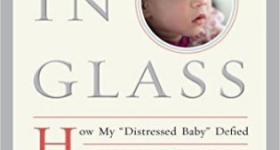Writing a review for Hyphen
can, in some ways, be more complicated than writing a review for The New
York Times. As an Asian American opening a book, pressing play on an album,
or stepping into a theater to witness another Asian American’s work -- you're barraged
with questions more existential than “was the writing good?”
and “was the acting good?”
Examples:
Was this created for an Asian
American audience or a mainstream audience?
How does this piece fit into our
historical narrative??
Is this piece even trying
to fit into our historical narrative???
If so, who am I to judge the
underrepresented experiences in my own community????
Who is Vincent Chin?????
WHO AM I AT ALL?!?!?!?!?!?!
All the while, you’re trying to
keep a stoic facial expression so as not to freak out everyone and get kicked
out of the seat that has been so graciously reserved for you. In short,
embedded in this simple 750-word assignment is an epic toggle over whether
Angela Chan and Michael Manley’s staged musical Legacy of the Tiger Mother
should be reviewed as an addition to the reel of Asian American pieces, as a
particle within the universal theatrical continuum, or just in context of
itself. Which way you lean may determine whether or not this play is worth
seeing.
If Legacy’s intention is to commute age-old identity
crises for those who missed the Joy Luck Club, Double Happiness,
and Eat Drink Man Woman buses, then it succeeds. There are your usual
players -- Lily (Satomi Hofmann) is the strict parent who escaped Mao’s China
for a better life in America; Mei (Lynn Craig) is the rebellious Chinese child
who hates having her piano-playing compared to more obedient Chinese children
-- and there’s mention of the shadowy white boyfriend/husband/lover (who at
some point left Mei with child for the shadowy white blonde/brunette/redhead).
Stories like this continue to be told because they speak to wide swath of Asian
American experiences, and Legacy does a fine job retelling it while
slipping in some catchy songs. Besides, someone needs to carry the torch -- Joy
Luck Club and company aren’t available for Netflix streaming.*

What distinguishes Legacy
from its counterparts is its timing -- it catapults itself off Amy Chua’s Battle
Hymn of the Tiger Mother, the “Strict Asian Parenting for Dummies” book
that rocked 2011 in controversy. But apart from the reference in the plot and
title, Legacy does little to investigate, satirize, comment on, or
resolve the Tiger Mother debacle. It is simply what you’d expect from a
musical interpretation of Chua’s concept -- no curve balls, no surprises, and (unlike
the rest of the Tiger Mother ecosystem), no controversy.
In fact, Legacy’s attention to walking the thin line
between showcasing stereotypes and countering them may be both its greatest
accomplishment and my deepest frustration. Legacy was first staged in
Las Vegas, and then at New York’s Times Square International Theatre Festival -- attracting
a mixed audience each time. In such a situation, the musical opted to balance
their “Asian references” delicately to appease but not offend, to challenge but
not invalidate. So throughout the play are lines like “B’s aren’t good enough,”
“practice piano for at least three hours,” and “don’t disgrace your
family!” While these points -- which are scattered generously through the hour --
are a necessary element for establishing the storyline, some of the more excessive
instances leave me wondering if they are included as a nod to Asian American
viewers (who populated half the theater), or to tickle the predictable funnybones
of a mainstream (i.e., white) theater audience. In her interpretation of Lily,
Hofmann sometimes slips from her shaky Chinese accent, wandering into Ms.
Swan from MadTV territory (she pronounces Mozart’s classic piece “Ful
Erise”). Other “Chinese moments” feel contrived and difficult to justify even
as a cultural bridge for a 2012 audience (there are constant Confucius quotes,
and at one point a character threatens to “hit you with a pair of chopsticks”).
Still, the play consciously refrains from using these moments as comical
crutches, and seeks to provide context through its dialogue.
So in essence, if we are to
evaluate the acting, writing, singing, and overall execution of Legacy of
the Tiger Mother, the verdict is that it’s pretty good in comparison to
many other Asian American productions out there. But if we are to view it
outside of that boundary -- whether as a next step in the Asian American
frontier, or as a piece to be judged among the world’s wealth of theatre -- it’s
average at best. Unfortunately, we children of Tiger Parents know that average
simply isn’t good enough.
*Correction: Eat Drink Man
Woman is now available on Netflix.
* * *
Adriel Luis is an artist, writer, and consultant who focuses on identifying imagination's role in social change. He is a member of the music and education collective iLL-Literacy, and has written for Change.org and Colorlines.com. More at drzzl.com









Comments